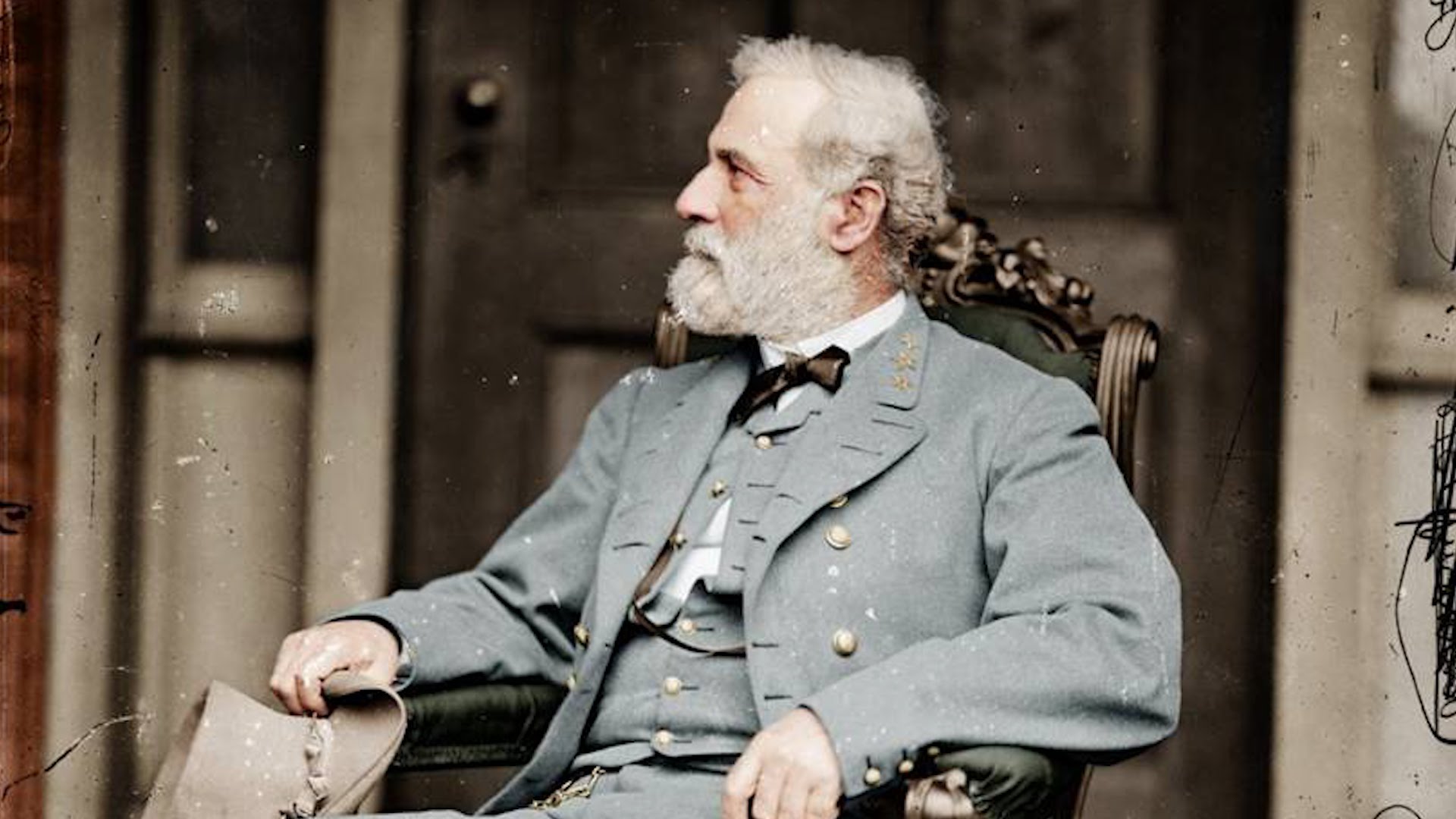Everything you know about Civil War legends Robert E. Lee and Ulysses S. Grant is wrong. At least that's what some new scholarship is suggesting.
In the 130 years since his death, Lee's reputation for piety, morality, and compassion reached fantastic levels. As one historian wrote, "Robert Lee was one of the small company of great men in whom there is no inconsistency to be explained, no enigma to be solved. What he seemed, he was—a wholly human gentleman, the essential elements of whose positive character were two and only two, simplicity and spirituality."
Many of Lee's accomplishments support this assessment. He graduated from West Point with no demerits, an unheard-of feat. He prayed and read his Bible daily. He didn't like tobacco or whiskey and only drank wine (never too much) on special occasions. He led some brilliant military campaigns. Plus, he surrendered like a gentleman, saying, "I have fought against the people of the North because I believed they were seeking to wrest from the South its dearest rights. But I have never cherished toward them bitter or vindictive feelings, and I have never seen the day when I did not pray for them."
Despite these achievements, some contemporary scholars say that the "Lee myth" is based less on reality than on a romantic identification with the South's "Lost Cause." Generations of Southern historians lifted him up as the exemplar of embattled nobility—a Southerner who was so great the whole nation could admire him. These same historians, to put the best possible spin on the war, argued that the conflict was about constitutional issues rather than slavery—allowing them to overlook Lee's statement that the master-slave relationship is "the best that can exist between the black and white races." Flaws like that, as well as questions about Lee's military prowess, are now being explored in books including Lee Considered: Gen. Robert E. Lee and Civil War History by Alan T. Nolan, Uncertain Glory: Lee's Generalship Re-examined by John D. McKenzie, and How Robert E. Lee Lost the Civil War by Edward H. Bonekemper.
Along with generations of Lee-worship came years of historiographic attack on Lee's nemesis, Grant. Thus, in the popular mind, Grant became a hard-drinking sinner, a hopeless president, a military opportunist—the antithesis of Lee.
Again, some facts support the conclusion: he sometimes drank too much, he was nowhere near the president Lincoln had been, and his lack of piety was a constant concern to his devoutly Methodist wife. Even so, scholars now working to rehabilitate Grant posit that he was not the victim of his own intemperance but of the "Lee myth," the "Lost Cause," and history's evaluation of his policies. The editor of Grant's papers, historian John Y. Simon, especially emphasizes the latter reason, suggesting that Grant's reputation (challenged since at least the 1890s) hit an all-time low in the 1930s, when Americans completely abandoned the Reconstruction policies Grant had fought to uphold.
Though no one is saying Grant was the greatest president ever, books like President Grant Reconsidered by Frank J. Scaturro, Ulysses S. Grant: Soldier & President by Geoffrey Perret, and the forthcoming Grant by Jean Edward Smith seek at least to give credit where it is due. Grant, following Lincoln, supported black suffrage and the inclusion of blacks in the Army. He also tried to crush the Ku Klux Klan, and he countered calls for extermination of the Plains Indians by attempting a peace policy. He may have been unable to bring any of these ideas to fruition, but given the fractured state of the nation during his tenure, perhaps his failures weren't entirely his fault.
Such is the state of Civil War history today. And though more dramatic reversals probably lie ahead, the caricatures of saintly Lee and devilish Grant might finally fade away.
Elesha Coffman is associate editor of Christian History.
Related Elsewhere
See last week's New York Times article "History's Judgment of the 2 Civil War Generals Is Changing" for more on historians' shifting assessment of Lee and Grant.
For Christian History's perspective on this period, see issue 33: "The Untold Story of Christianity & The Civil War."
Grant's peace policy was discussed in the April 7 Christian History Corner, "The Original 'Charitable Choice' Program."
Lee Considered, Uncertain Glory, How Robert E. Lee Lost the Civil War, President Grant Reconsidered, Ulysses S. Grant: Soldier & President,and Grant are available at Amazon.com and other book retailers.
Christian History Corner appears every Friday at ChristianityToday.com. Previous Christian History Corners include:
Olympia Revisited | Christianity and the Olympic Games were once competitors, but at other times have been on the same team. (Sept. 29, 2000)
Weighty Matters | Gwen Shamblin's teachings sound an awful lot like some in the early church—and not in a good way. (Sept. 22, 2000)
In Errancy | Want to know what's wrong with the Western church? Start with a list. (Sept. 15, 2000)
"Kill Them All" | The medieval church was deadly serious about eliminating 'heretical' Cathars. (Sept. 11, 2000)
All Together Now | What qualifies as an ecumenical council anyway? (Sept. 1, 2000)
Soviets, Schism, and Sabotage | How the government manipulated division in the Russian Orthodox Church. (Aug. 18, 2000)
Sacrifice at Sea | The story that wasn't in James Cameron's Titanic. (Aug. 11, 2000)
Colonial Soul | The Cross and The Tomahawk series examines our nation's past from many perspectives. (Aug. 4, 2000)
The Fifth Evangelist | Johann Sebastian Bach was a musician "who lived the Bible." (July 28, 2000)
How the Other Half Lived | Chronicling the forgotten gender in the Bible and church history. (July 21, 2000)
A Cure for Cliophobia | While not for "dummies" or "complete idiots," a new guide introduces church history to the beginner. (July 14, 2000)
Copyright © 2000 Christianity Today. Click for reprint information.









